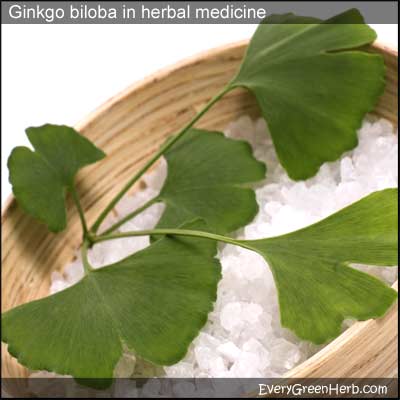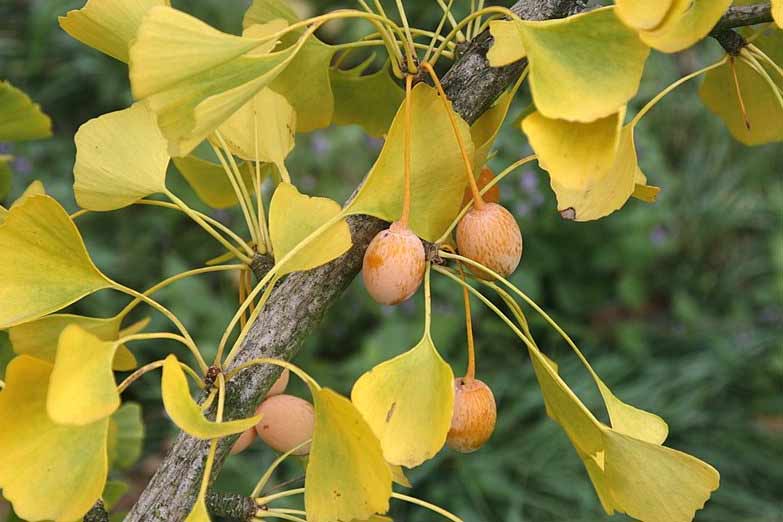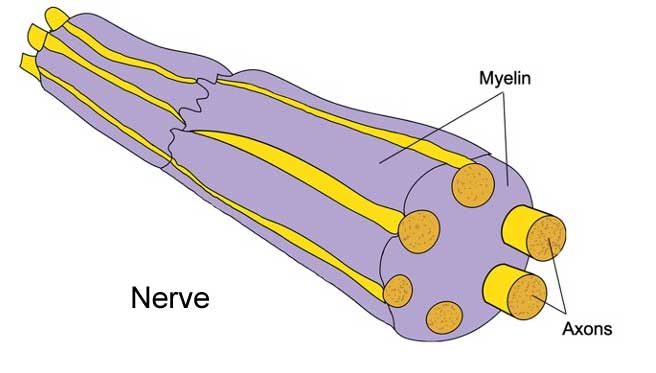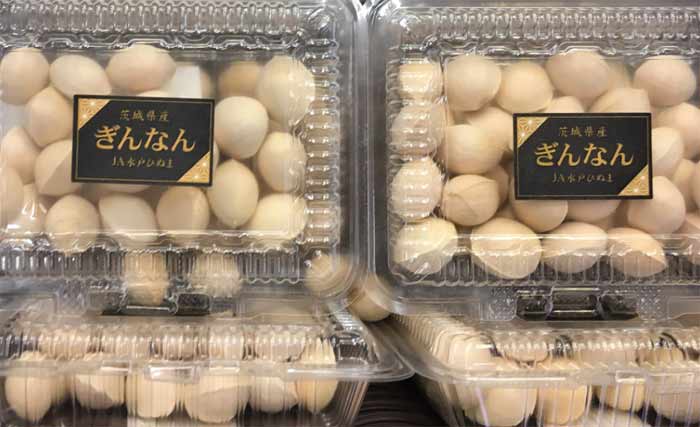Ginkgo biloba in herbal medicine

Ginkgo biloba, originally from China, is a powerful herbal remedy used to treat everything from allergies and cancer to nervous conditions and the brain.
Ginkgo biloba is a herbal powerhouse. Regular use of ginkgo biloba helps protect against blood clots and more.
It is used to relax the blood vessels, to stimulate the circulatory system, to increase blood flow to the brain, and to improve eye problems.
Ginkgo biloba has many uses.
Ginkgo biloba has anti-aging properties, sharpens the memory, reduces anxiety, lowers blood pressure, relieves headaches, improves circulation, and may help prevent or delay the onset of Alzheimer’s disease and dementia.
This amazing herb is considered a potent natural remedy for increasing concentration and focus! If you are feeling a little scatter-brained, try a cup of ginkgo biloba tea!
Ginkgo biloba can help stop ringing of the ears and can help improve vision. It goes deep into the body to protect and heal.

Ginkgo biloba has lots of antioxidants.
Ginkgo biloba teas and extracts are good for varicose veins, hemorrhoids, congestive heart failure, depression, diabetes, impotence, macular degeneration, other eye diseases, migraines, multiple sclerosis, and leg ulcers.
Ginkgo leaves contain two types of antioxidants called flavonoids and terpenoids. These substances have extremely potent antioxidant properties. Antioxidants mop up harmful free radicals in the body and help protect against the effects of aging.
The science behind ginkgo biloba
Ginkgo biloba leaf extract has been used for treating degenerative diseases associated with aging including Alzheimer's for thousands of years.
Ginkgo biloba has many healing properties. It is a powerful antioxidant that scavenges free radicals, stopping them from damaging the cells in our bodies.
Ginkgo biloba is effective against certain cancers, and it is useful for keeping the cardiovascular system healthy.
Ginkgo biloba might also be useful in the treatment of psychiatric disorders, sexual dysfunction, vertigo, tinnitus, vitiligo, macular degeneration, glaucoma, and altitude sickness.
Primary ingredients, terpene lactones and ginkgo flavone glycosides, benefit neurotransmitter pathways and brain structures. These substances work to limit stress induced corticosterone secretions which helps bring about healing.
Read more about herbs for the brain.

Good for the nerves
Studies show that ginkgo biloba may actually cause damaged nerve cells to regenerate!
Ginkgo biloba protects DNA from oxidative damage by stimulating repair and protective actions in the mitochondria. Research shows that regular use of ginkgo biloba causes a significant improvement in cognition, mental health, and quality of life.
Tests also show that taking ginkgo biloba helps prevent Parkinson's disease by decreasing dopamine neuron loss.
Use of ginkgo should be limited if you have a bleeding disorder. More research is underway on this amazing herb.
Ginkgo biloba seeds
Ginkgo biloba seeds are astringent, antifungal, and antibacterial. They are used in the treatment of asthma, coughs, incontinence, and excessive urination. The seeds are very nutritious and considered a delicacy in China.

Ginkgo biloba has a long history.
Medical use of ginkgo biloba goes back five thousand years when Chinese herbalists used it for memory loss and respiratory ailments.
Ginkgo biloba is also known as the maidenhair tree.
Ginkgo biloba trees can live over three thousand years and are one of the oldest living species of trees on earth.
These trees are not pines or ferns, and occupy a unique position in the plant kingdom. The ginkgo biloba tree is the sole living link between the lower and higher plants, between ferns and conifers.
Ginkgo biloba trees can easily be grown in North Georgia.
Ginkgo biloba trees grow well in the North Georgia area, even in city atmospheres where pollution would kill other trees.
Young trees should be staked because they tend to grow crooked.
Ginkgo biloba trees start off growing slowly but after a few years the rate of growth increases.
After a female tree reaches about 30 years old, yellow plum like fruits are produced when pollinated. Male pollen is usually carried by the wind.
*Do not eat raw ginkgo seeds. They should be completely cooked or roasted. Avoid ginkgo biloba when taking aspirin, anti-inflammatory medications, or blood thinners. When taking ginkgo biloba, do not exceed the recommended dose as a little goes a long way.
Use of ginkgo biloba may cause mild headaches, rashes, or upset stomachs. Discontinue use if any symptoms persist. Discontinue use of ginkgo biloba a month before surgery.
Always consult with a healthcare professional before using any herbal remedy especially if pregnant, nursing, or taking other medicines.
Sources:
https://www.ncbi.nlm.nih.gov/pmc/articles/PMC5758353/
https://www.ncbi.nlm.nih.gov/books/NBK541024/
Blessings to you and yours!
Thanks so much for reading my blog. Jan.

*Note - the information on this website has not been evaluated by the Food and Drug Administration.
© 2005-2024 website design and content by Janice Boling